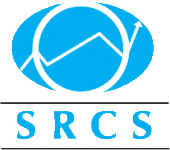Saturday, July 11, 2009
Automation Impact on Nepali Bourse
The performance of Nepal’s stock exchange increased substantially after the trading floor of the exchange was automated on 23 August 2007.
A study by Securities Research Center and Services (SRCS) P. Ltd. has concluded that the overall liquidity, number of shares traded as well as the number of transactions have significantly increased after the automation. The study covered 16 months (328 days) before the automation and 16 months (355 days) after the automation, according to SRCS President Rabindra Bhattarai, who conducted the study.
The average daily traded amount after automation has increased more than three times to Rs. 100 million from Rs. 30 million after the automation. Similarly, the daily average number of shares traded has increased from 81 thousands to 130 thousand and average number of daily transactions from 461 to 840.
The daily average change in the Nepse index has however come down after the automation. Such change before automation was 0.2275 percent daily in average which came down to 0.0041 percent after the automation. The report blames the reason for this decline on two factors: the Maoist-led government’s policy and high fluctuation in the share prices of Nepal Telecom. According to Bhattarai, the stock market had decreased by nearly 50 percent after the formation of the Maoist-led government. (New Business Age,June 2009)
A study by Securities Research Center and Services (SRCS) P. Ltd. has concluded that the overall liquidity, number of shares traded as well as the number of transactions have significantly increased after the automation. The study covered 16 months (328 days) before the automation and 16 months (355 days) after the automation, according to SRCS President Rabindra Bhattarai, who conducted the study.
The average daily traded amount after automation has increased more than three times to Rs. 100 million from Rs. 30 million after the automation. Similarly, the daily average number of shares traded has increased from 81 thousands to 130 thousand and average number of daily transactions from 461 to 840.
The daily average change in the Nepse index has however come down after the automation. Such change before automation was 0.2275 percent daily in average which came down to 0.0041 percent after the automation. The report blames the reason for this decline on two factors: the Maoist-led government’s policy and high fluctuation in the share prices of Nepal Telecom. According to Bhattarai, the stock market had decreased by nearly 50 percent after the formation of the Maoist-led government. (New Business Age,June 2009)
Thursday, July 9, 2009
Wednesday, July 8, 2009
Monday, July 6, 2009
Stock Market News(2066/3/23)
- Civil Merchant Bittiya Sanstha allotted its right share on 2066/3/21.
- Standard Finance closes its right share issue on 2066/3/23.
- Ace Development Bank started to distribute right share certificate from 2066/3/24.
- Life Insurance Corporation started to distribute 15 % cash dividend from 2066/1/13.
- Fewa Finance published announcement letter for 1:2 right share issue. Issue Opening Date: 2066/4/9, No of issued share:18 lakh 20 thousand, Issue Closing Date:2066/5/11, Issue Manager:Elite Capital Ltd.
Sunday, July 5, 2009
Subscribe to:
Comments (Atom)





